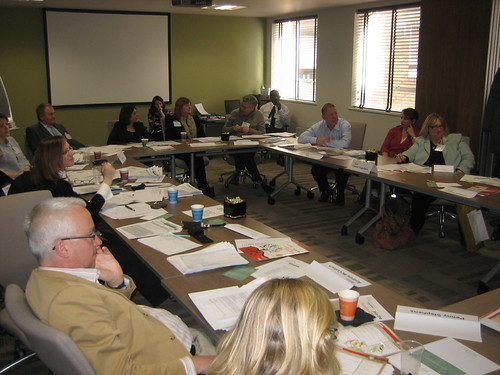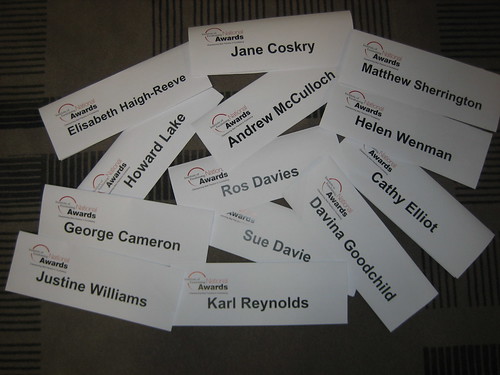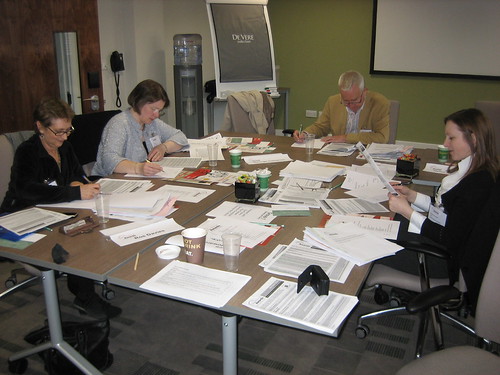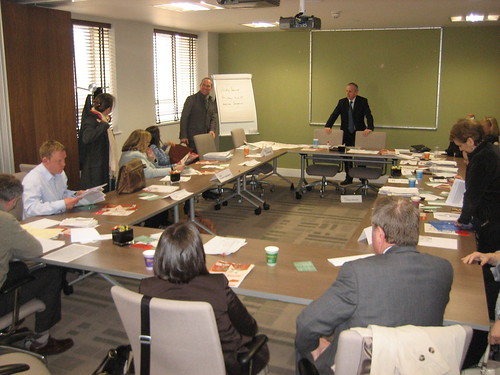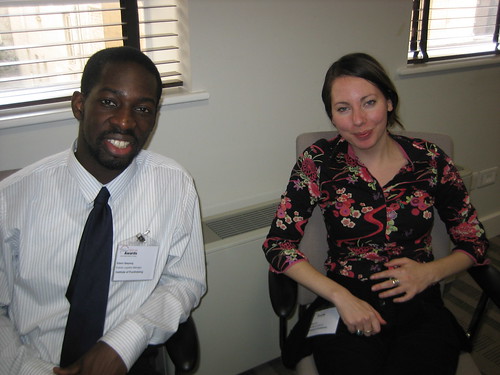Awards rewards
Yesterday I had the enjoyable task of joining a roomful of fellow fundraisers and chief executives in judging the entries to the Institute of Fundraising National Awards. It is one of those opportunities where you get to see the detail, creativity and hard work that goes into making fundraising campaigns successes. As such, it is an inspiring occasion.
This is the third year that I have been invited by the Institute to help judge the awards and I find the day fascinating and inspiring. You get to read the rationale, objectives, results and lessons learned from a wide range of fundraising campaigns.
I’m familiar with some of the campaigns through reporting on them on UK Fundraising but there are many more that are new to me. Entries are submitted by large national charities, smaller local organisations, and by fundraising agencies.
If you have wondered what it is like being a judge, this is what is involved. First, you have to be invited by the Institute. Sometimes your fellow judges are some of the more familiar names from the sector, but there are always names new to me. This year there was an attempt to broaden the experience of judges by inviting a number of charity chief executives.
Two weeks before the judging day you receive a large package of copies of the entries. If you become a judge in future, my tip is – start right away! There is a lot of detail in the entries, and there are very few weak or invalid entries.
The judging day is an easier process – if you and your fellow judges have come to a similar shortlist. Fortunately, there is often surprising overlap in the shortlist that the judges come up with, which is encouraging given the wide and differing work experience of the judges. It can give you confidence that you have all spotted the outstanding entries.
In most categories you have to choose a winner and two runners up. Once that is done, you have to write a summary of why you chose them. The winner’s summary will be read out at the awards ceremony in July.
Judges are divided into three groups, each to focus on around five different award categories.
The judges give their time voluntarily, in case you were wondering. We get a nice lunch (no, no alcohol involved) in the serviced offices which the Institute booked for the day, plus tea, coffee and biscuits.
There are some conflicts of interest in some cases, but as far as I was aware the judges declared these.
The event is chaired by Institute of Fundraising CEO Lindsay Boswell and seems very smoothly run by Edwin Saayeng, Events Logistics Manager at the Institute, and Ellie Little, Conference Co-ordinator.
In return for our time on the awards all judges are invited to attend the awards ceremony at the National Convention in London in July.
So, those who were shortlisted will be hearing soon from the Institute. If you’d like to find out more about the shortlisted entries, Penny Stephens will be blogging about the different categories over the coming months on UK Fundraising.
If you have ever considered entering the awards I would thoroughly recommend you do for the following reasons:
* you would be surprised how few entries some categories receive. Do not assume that your innovative or successful campaign would not hold its own with those that are entered.
* the awards are not just for the large national charities, although they often do have something to shout about and the resources to submit an entry.
* the awards are a wonderful way of giving recognition to individual fundraisers and fundraising teams. The entry form is only three pages long, so is a very easy way to give your colleagues a very public thank you.
* the awards don’t just focus on the return on investment of a campaign, essential as that is. Lots of entries this year mentioned the fact that they hadn’t hit the original target, indicating that this was due to the economic downnturn to varying degrees. But they made good cases why the campaign had still been a success.
So, when it comes to the beginning of 2010, I do urge you to enter next year’s awards. Even if that does mean that the hearts of next year’s judges sink just a little bit when the pile of entries is delivered…
www.nationalawards.org.uk



